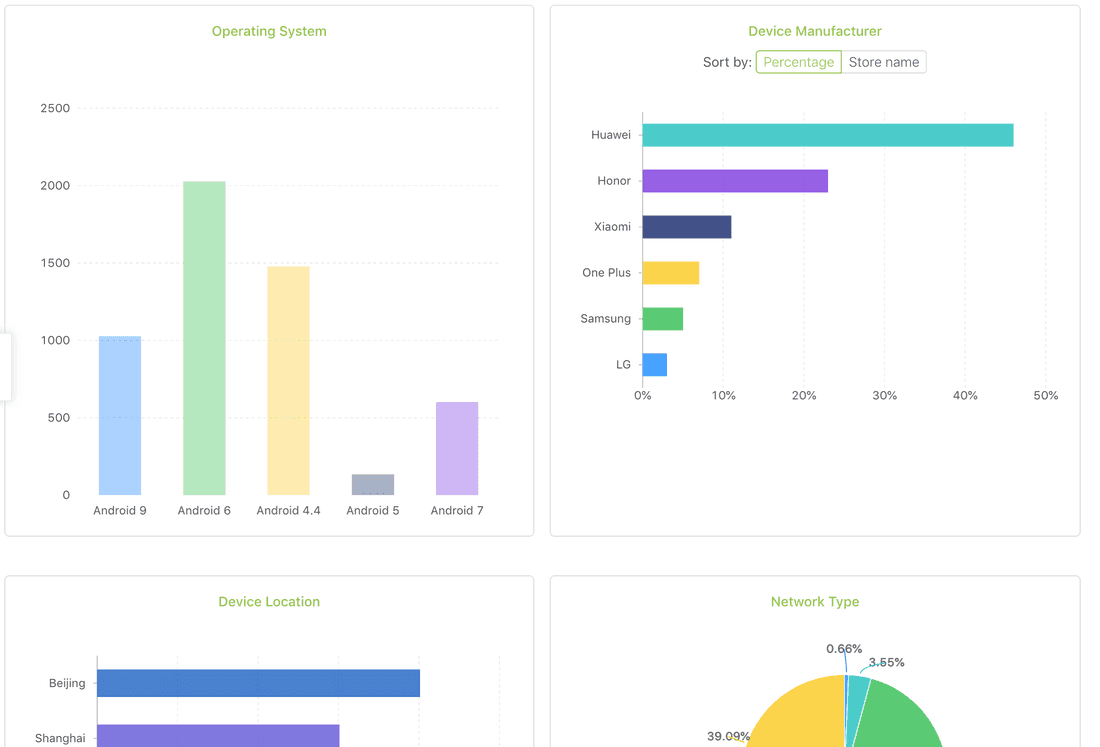Getting Analytics For Your Mobile App Or Game In China

Once you have published your app, you will want to track its performance in the Chinese market. Unfortunately, a very low level of data transparency in the Chinese app ecosystem makes it difficult to monitor. Typically, developers should install an SDK into their app, such as AppInChina Analytics, that helps aggregate and provide more reliable analytics information.
What Are The Challenges For Data Analytics For Chinese Apps and Games?
Getting the Data. Many Chinese Android app stores have strict policies regarding foreign third-party solutions (especially for in-app analytics). As a result, when Android apps embedded with well-known international tracking solutions are uploaded to these channels, they can either be rejected or lose full functionality. This problem leads many developers to rely solely on the app store’s reported metrics, which would be a mistake.
And when your app is published across multiple app stores, the data must be pulled from each store individually and then aggregated in some way so you can get a bigger picture of your app’s performance in the entire market, or compare strategies’ effectiveness across stores.
Reading the Data. Since data sharing policies for local companies in China are very tight, not all data metrics and user information collected are disclosed, especially on third-party app stores that are partially or fully funded by government owned companies. Additionally, when data is publicly shared, the accuracy level can fluctuate, with the likelihood of inflated data and false customer reviews increasing or decreasing depending on how well the app is performing. This obstacle can cause app developers to make data forecasts and plan marketing strategies based on a limited and sometimes unclear view of their app’s performance.
To access this data usually requires the developer to log into each app store on its own dashboard. If you do not speak Chinese, you will be at a disadvantage because many of these stores only offer Chinese-language websites. And if you are published across multiple stores (as you should be), you will quickly tire of the lack of aggregation.
Protecting the Data. The third obstacle is shielding your app’s performance data. In China, it’s not uncommon for third-party Android app stores to share or sell in-app analytics to affiliated marketing and promotion providers. Additionally, more and more local hackers are using custom technology to scrape popular app data from live app stores, so they can redistribute them onto other prominent channels. This issue can leave app user data and information exposed and potentially lead to hacks and other security problems.
Accurate data tracking and secure data protection can be achieved by pre-installing your own tracking solution or by implementing a robust third-party tracking SDK into your app so you can track your users’ data directly, avoid using the app store’s questionable data, and safeguard your users’ in-app analytics.
How to Overcome These Obstacles With AppInChina Analytics
The AppInChina Analytics SDK integrates seamlessly into your app and with your custom client dashboard to present all the analytics you need in a simple, east to understand format – and all in English. If you are your using AppInChina Pay for your in-app purchases, it’s even more powerful.
We can also collect all your app’s unshared data from the individual app stores and create comprehensive download reports, which we send to you on either a weekly or monthly basis.